Taking a road trip can be a great way to travel, but it can also take a toll on the environment. Luckily, there are many small things we can do to make our road trips more sustainable and eco-friendly. Let’s all do our best to minimize our footprint and keep this earth beautiful!
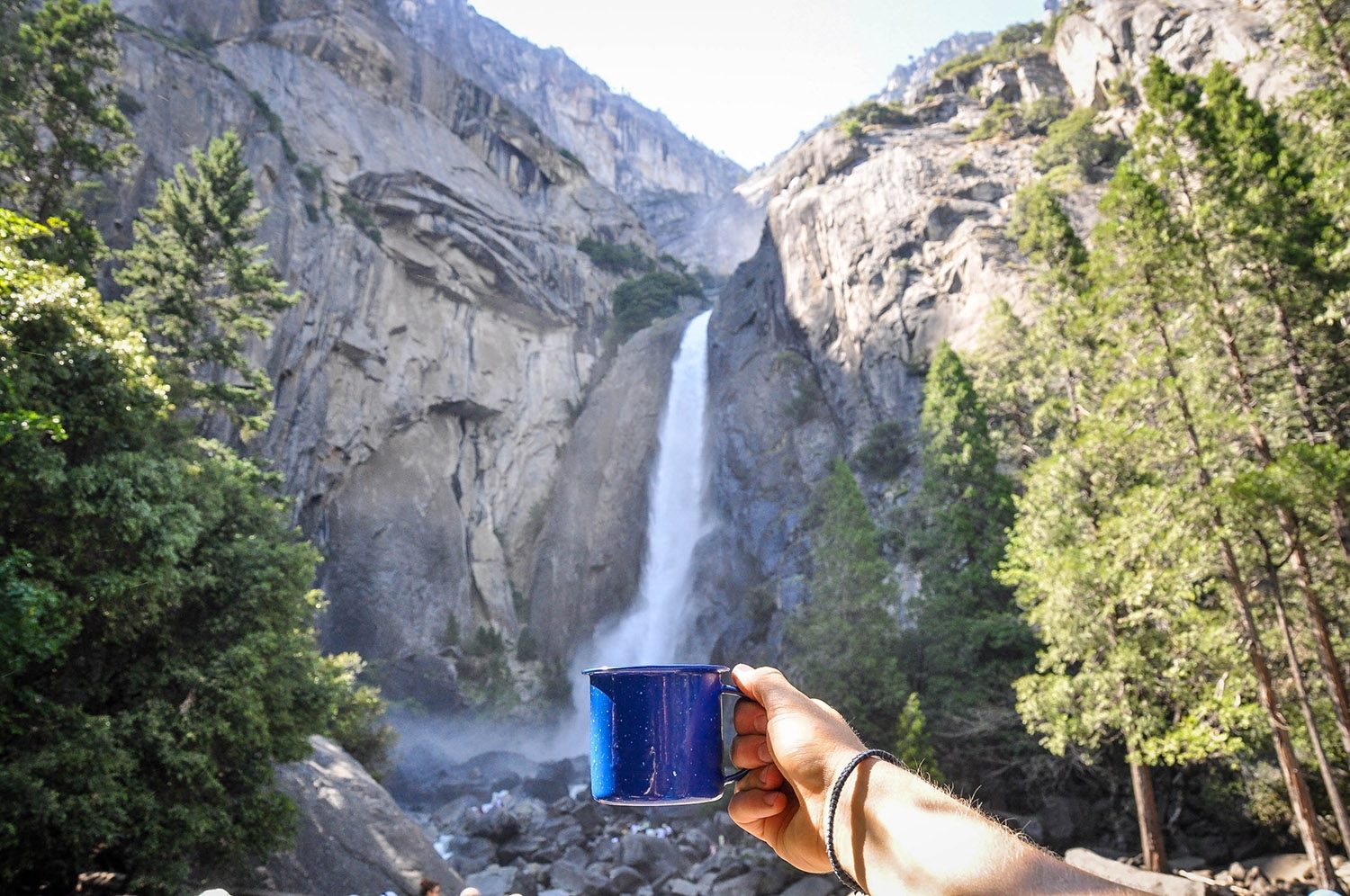
Taking a road trip is one of our favorite ways to travel. You can go at your own pace and explore areas you would never see is you simply fly from destination to destination. But just like any kind of travel, road tripping can take a toll on the environment.
We spent a summer traveling around the Western United States in a campervan and we tried our best to travel responsibly and be conscious about our impact on the environment.
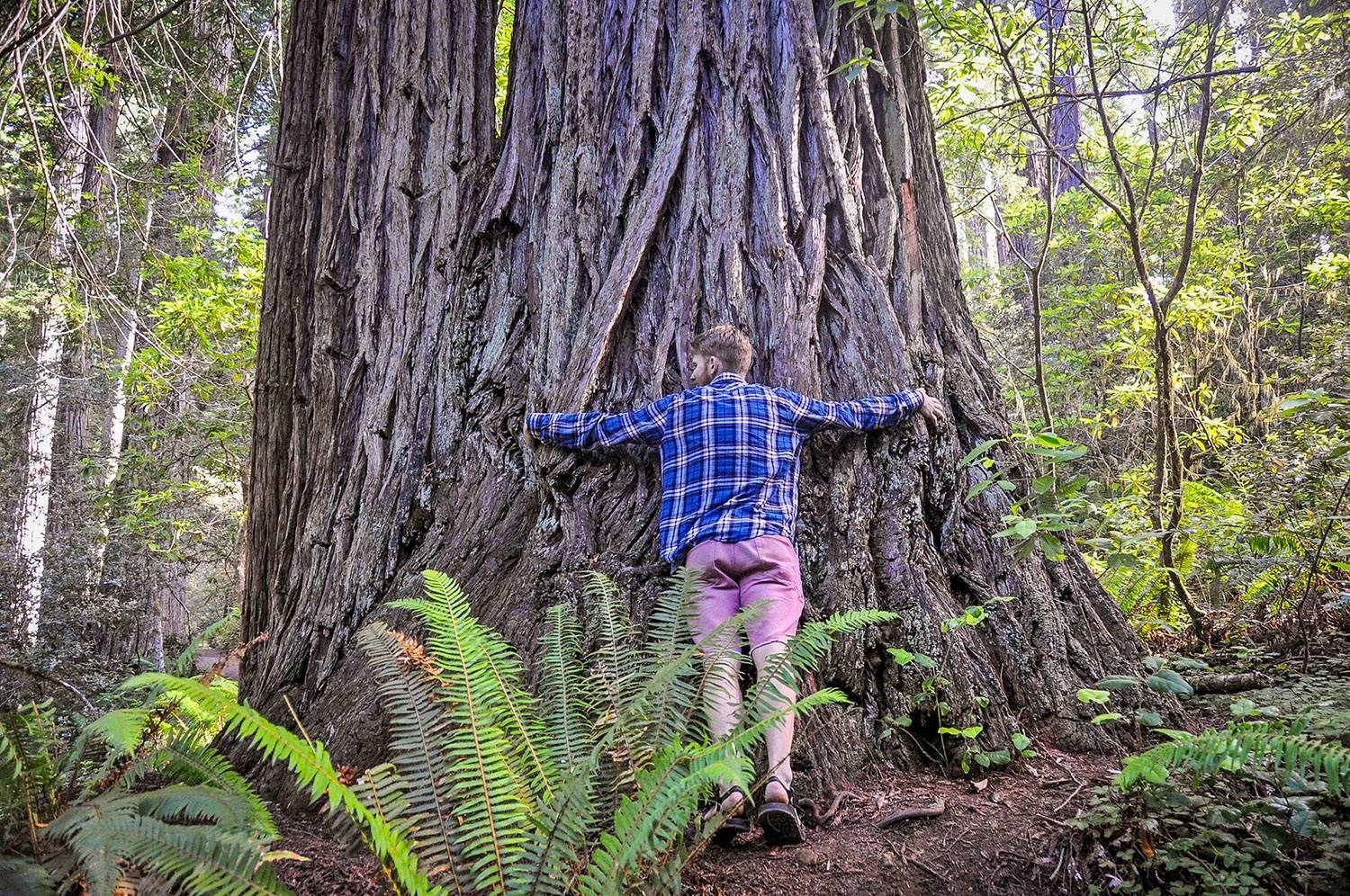
This list is some of the little things we did to make our road trip a little more “green” and sustainable.
We hope you can use some of these ideas (and share your own tips!) so that we can all help protect this earth. It is the only one we’ve got, after all!
We learned a LOT and we want to share our best sustainable road trip tips with you!
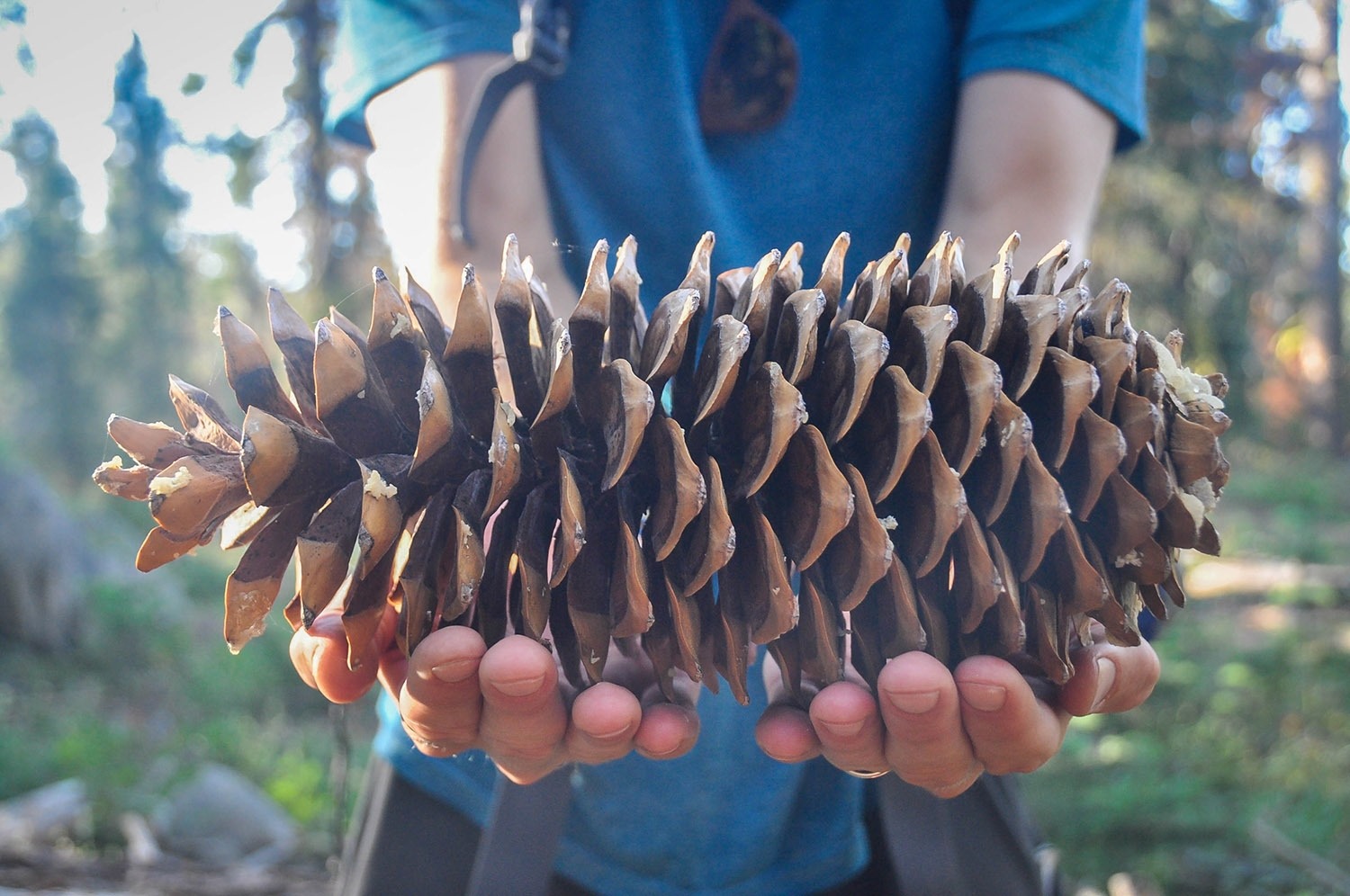
Whether you are staying in a hotel, living in a campervan or RV, or you’re trekking in the backcountry, here is everything you’ll want to pack for the road. Plus tips and advice on making your next road trip go as smoothly as possible!
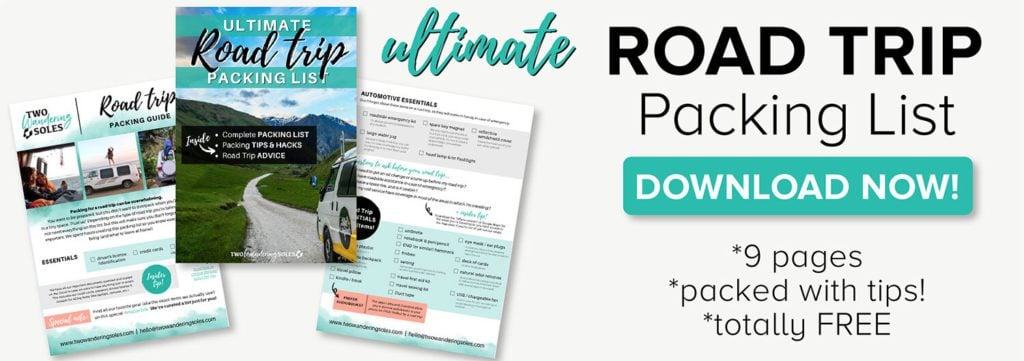
Related: Eco-friendly Products for Responsible Travelers
You don’t actually have to be on a road trip to try out some of these tips. Many of these are little things you can do in your everyday life to live more consciously.
This article is broken up into three sections:
- Reduce Waste
- Lower your Emissions
- Protect Nature & Wildlife
Alright, let’s get started so you can plan an epic (and eco-friendly) road trip!
Reduce Waste
While at home, you might have some systems in place to lessen the amount of waste you create. But it can be easy to forget these things when you’re on the road.
1. Fill up water to avoid buying bottles
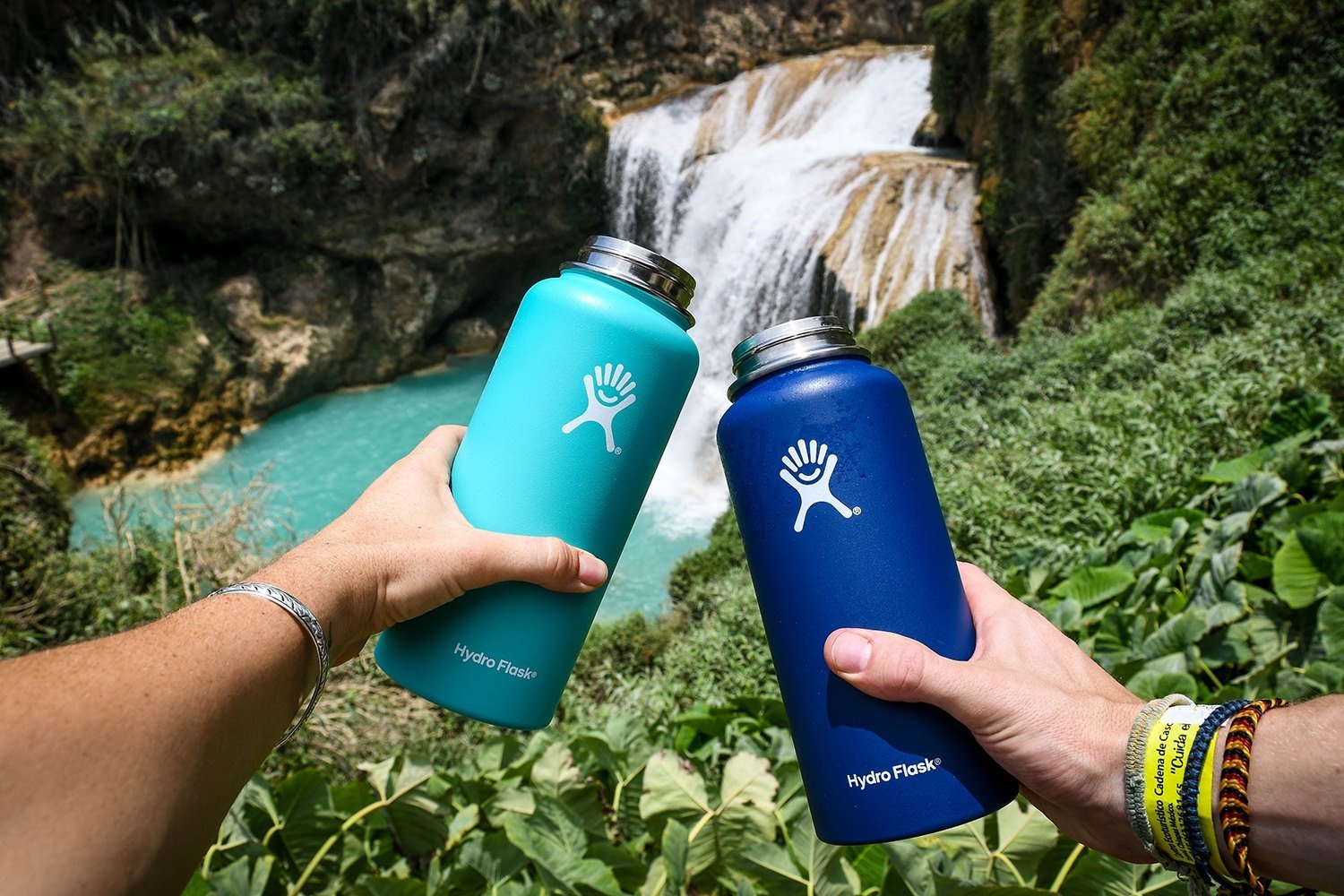
Buying bottled water is a habit we gave up long ago. If you are road tripping in the United States, you’ll be able to drink the tap water in most places, so plan on filling up a few large jugs at campsites or public parks. Sometimes sporting goods stores even have a place you can fill ‘er up.
If you’re concerned about drinking the water somewhere, try sterilizing it with a Steripen for small amounts (1 liter at a time) or use a Katadyn Vario Water Filter for larger amounts (this device is great for streams or small lakes as it removes debris).
2. Bring your own reusable containers
Reusable containers are a great investment. When we cooked meals in our campervan, we were able to store our leftovers and reduce waste. Plus, when we went out to eat, we could ask for take away or leftovers in these containers instead of constantly collecting plastic clamshells and Styrofoam boxes. And don’t forget reusable utensils and cups, too! Plastic ones are a waste unless you wash and reuse them.
Tip: We like these collapsible silicone containers because they pack up nicely (saving space is key!) plus they have durable snap-on containers. The best part is neither of them contain BPA, so there won’t be any chemicals leaching into your food.
3. Pack reusable bags
Just like you do at home, bring reusable bags to the grocery store, on Target runs and to farmers markets. We like these packable totes from Tree Tribe because they stuff up super small. Even though they take up hardly any space, they can carry lots of stuff when needed!
Tip: We try to avoid those plastic produce bags from grocery stores when possible. But for the times that we do need them, we save them to reuse the next time we’re at the grocery store. We just stash them in our reusable grocery bag so we have them handy.
4. Recycle plastic bags
Try to follow tip #2 as best you can, but if you do end up with some pesky plastic bags, reuse them as trash bin liners or bring them to the store the next time you go shopping. There is no reason plastic bags should only be used once. And when they truly are at the end of their life, be sure to recycle those plastic bags so they don’t wind up in a landfill.
5. Say no to straws
Along your road trip, you’ll surely stop for an occasional smoothie or iced coffee, and when you do, request that your drink be served without a straw. These single-use plastic items are ending up in the oceans in the thousands, and they unnecessary.
If you really like sipping your drinks through a straw, get the reusable kind so you can use it over and over again!
Related Post: Check out our top money-saving tips for a cheap road trip!
6. Seek out recycling centers
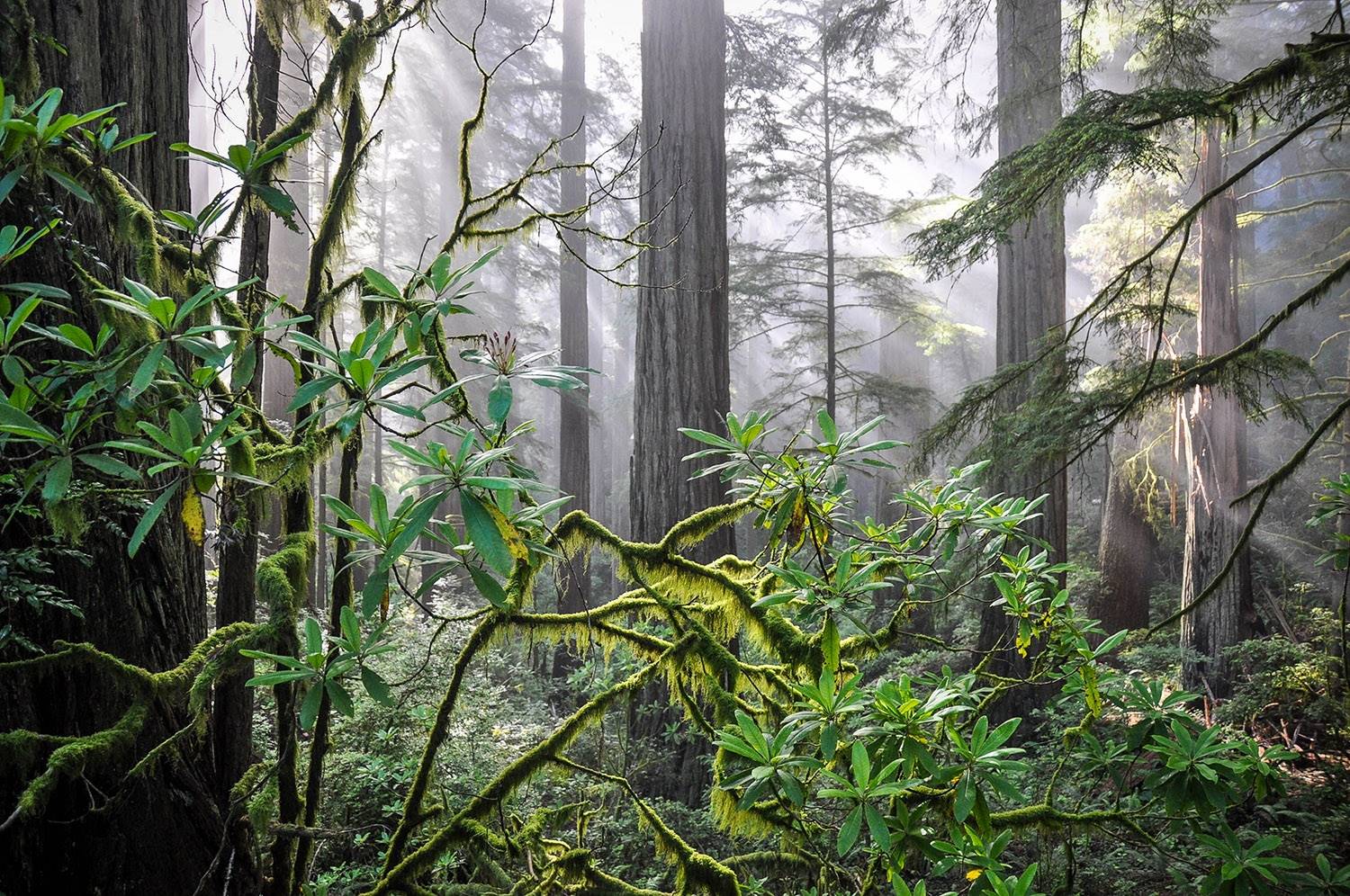
A quick search on Google Maps can show you where recycling centers are in your current location. Be sure to read up on their hours before stopping by with your recycling. Some states and cities are much better at recycling than others, but it is our job to try our hardest no matter where we may be.
7. Plan out meals to reduce food waste
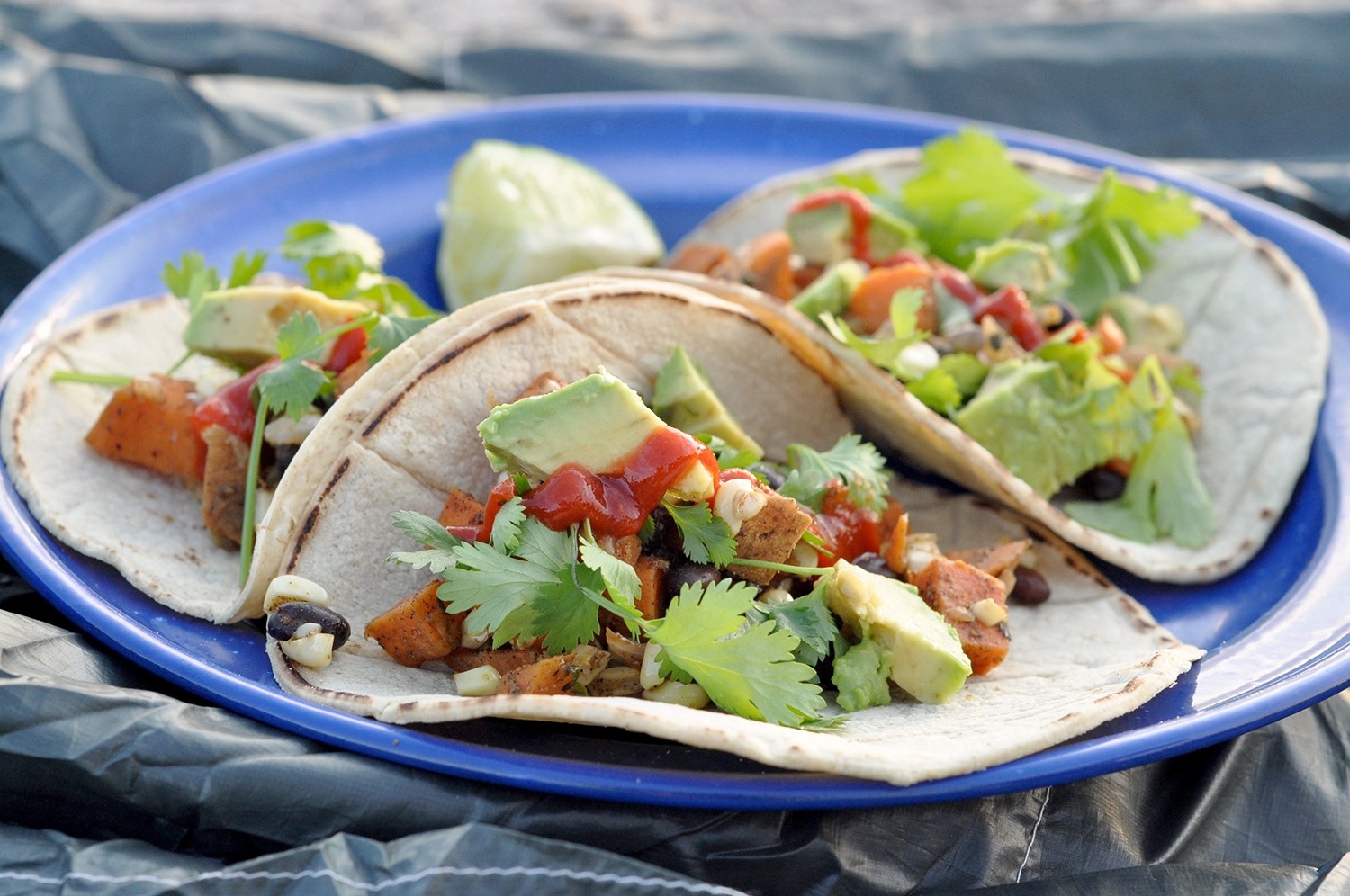
One of my biggest pet peeves is seeing food thrown away, so we’re kind of obsessed when it comes to preventing food waste.
When we lived in a campervan, we used a cooler to keep our food fresh. Things can spoil quickly in a cooler, but we felt like that was no excuse to let things go bad. We found that planning ahead really helped. For instance, we didn’t go out to eat if we had food in our cooler, and we planned meals around what groceries we already had.
Check out our 7 easy and healthy camping meals you can have on the road.
We even kept track of every single piece of food we had to throw away during our 3-month road trip. No, I’m not kidding. And yes, we may be a bit crazy. But like I said, it is something we really care about and were trying to track, so there you have it.
- ⅛ jicama
- ¼ container coconut milk
- 4 hard boiled eggs
- ¼ cantaloupe
- 6 strawberries
- 1 bell pepper
- ⅛ container hummus
- ⅓ red bell pepper
All of these items had spoiled, so they had to be thrown out. For a 3-month road trip, we were pretty proud of how little food we wasted.
Related Post: Learn how to make your own DIY campervan conversion on a TINY budget in less than a week! Now, we’re not joking… we did it and you can too!
Lower your emissions
As you’re road tripping about, it’s good to prep your vehicle and do a bit of planning to ensure it’s in tip-top shape for the road.
8. Plan route to minimize back-tracking
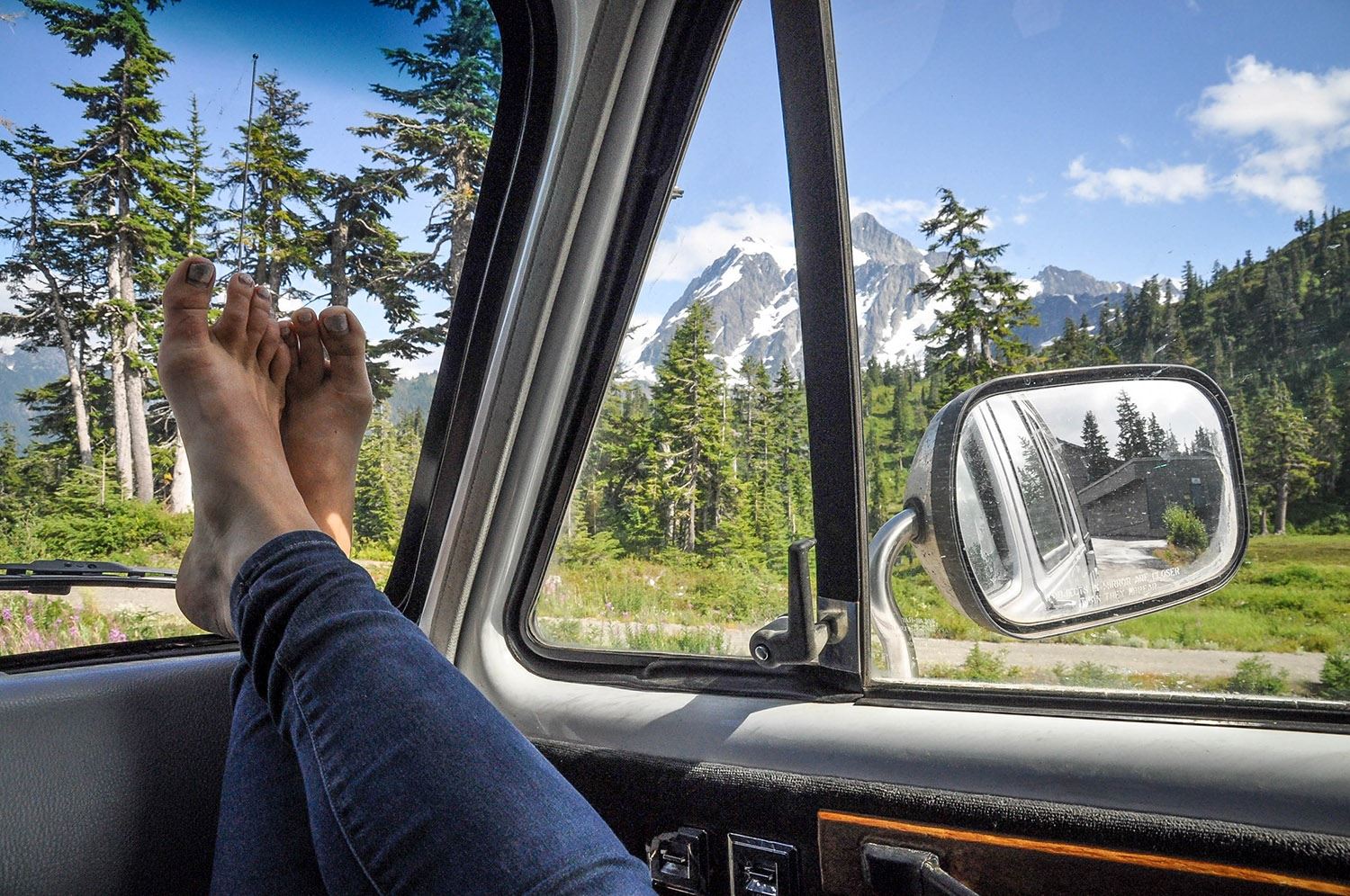
Sometimes getting lost is a beautiful part of your journey, and it happens to even the most directionally-confident of people (including Ben!).
But if you’re trying to minimize your impact on the environment, back-tracking can take its toll on your gas usage. Plus, this tip will save you money as well.
Try your best to plan your route before hitting the road so you don’t have to rely on U-turns to get to your intended destination.
9. Have your car checked out to make sure there are no leaks
Before embarking on your road trip, have your car inspected to make sure there are no leaks. This is just good practice, since you don’t want to run into a problem in the middle of nowhere, but it’ll also ensure your vehicle is running as efficiently as possible.
Psst! Get motived and inspired to hit the road with this list of road trip quotes (+ graphics!).
10. Check your tire pressure
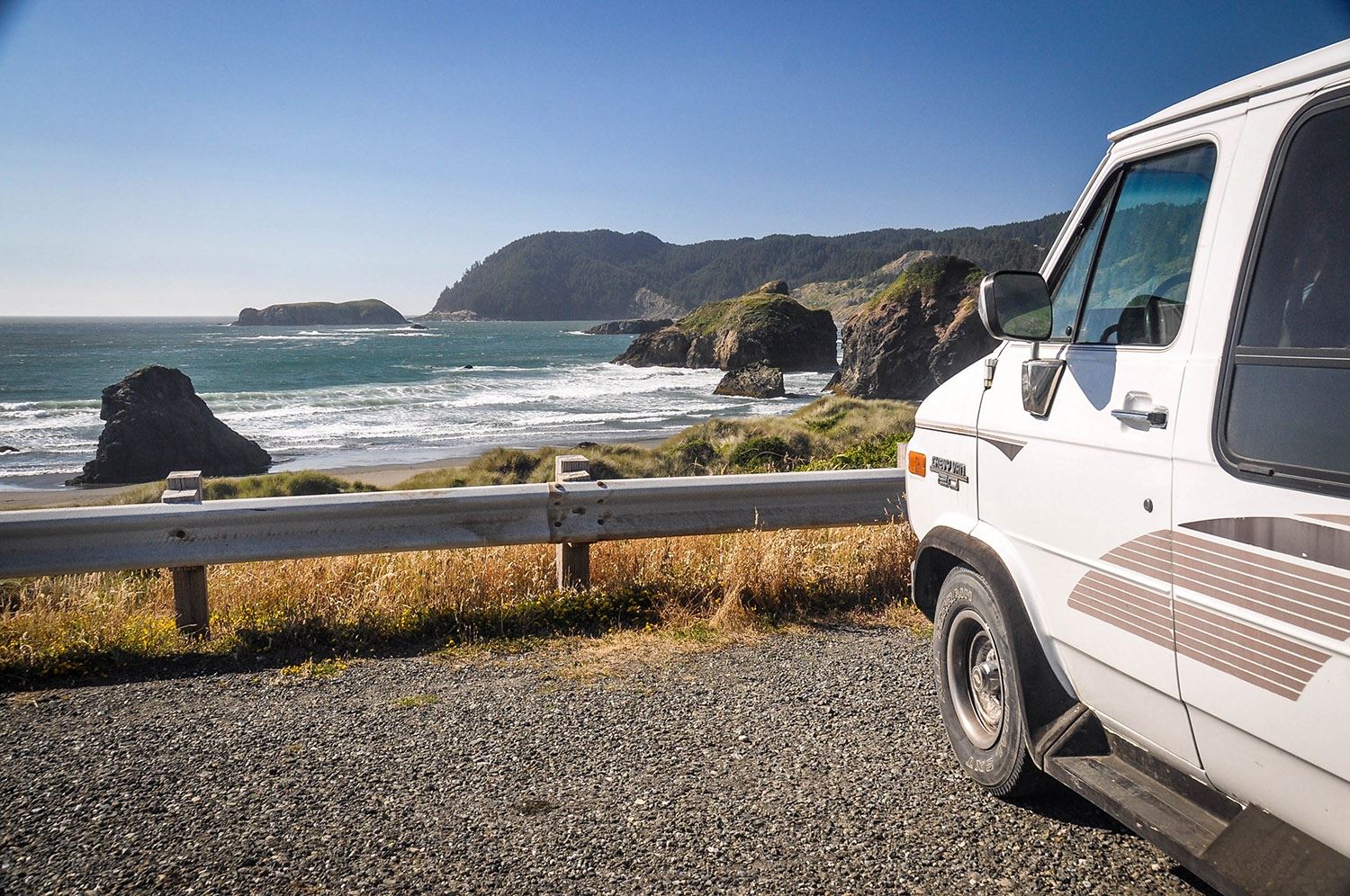
Tires that are not filled to the correct pressure can actually use quite a bit more fuel. So check ’em out and make sure they’re at the right level. This will save you gas money and reduce your carbon emissions.
Protect Nature & Wildlife
Arguably the best part of taking a road trip is the opportunity to get into nature. Be sure you’re educated about some basic guidelines so your presence isn’t doing any harm to the environment or wildlife that call it home.
11. Don’t litter! No, not even fruit peels!
Please, oh pretty please, don’t litter. Of all my pet peeves, this has got to be in the top three. And not just talking wrappers and plastics… I’m also talking about gum (duh!), apple cores, fruit peels and nutshells. It might seem that these biodegradable items would be okay to toss at the edge of the woods, but it’s not. Here’s why:
- The fruit or vegetable remains are likely not native to the land on which you’re tossing them, creating an unnatural breakdown process.
- Those peels and cores and shells often take much longer than you might think to break down. Do you know that it could take up to 5 weeks for an orange peel to breakdown fully? And even longer in colder weather.
- Food items can attract animals and they will ingest things that they shouldn’t be eating. Plus, it can lure them close to the road and weaken their natural instincts.
- Lastly, it doesn’t look nice for the next person following in your footsteps to come across a rotting banana peel or step on a spattering of pistachio shells.
Let’s all do our best to keep nature (and towns) beautiful and leave it as we found it.
To read more about this, check out the Leave No Trace guidelines.
Related Post: How much does living in a campervan cost? We’re breaking it down for you!
12. Pick up litter
I can rant all I want about hating litter, but that does nothing about the problem. I have this thought often: What if every single person on earth picked up 3 pieces of trash today? What if they did this every day? Would all the litter be cleaned up?
We can’t rely on every person to do this, but we can count on ourselves. Each of us can make a difference that we feel good about.
A couple years ago, I started challenge myself to pick up trash instead of simply stepping over it.
I’m no saint, and this doesn’t mean that I’m constantly picking up garbage wherever I go. But for instance, if a plastic bottle is in the middle of the sidewalk and I’m going to walk past it anyway, I pick it up and put it in the nearest recycling bin. I’ve become more aware of the trash on the ground, and often times it takes 2 seconds of effort to clean up a bit.
13. Leave campsites and picnic areas better than you found them
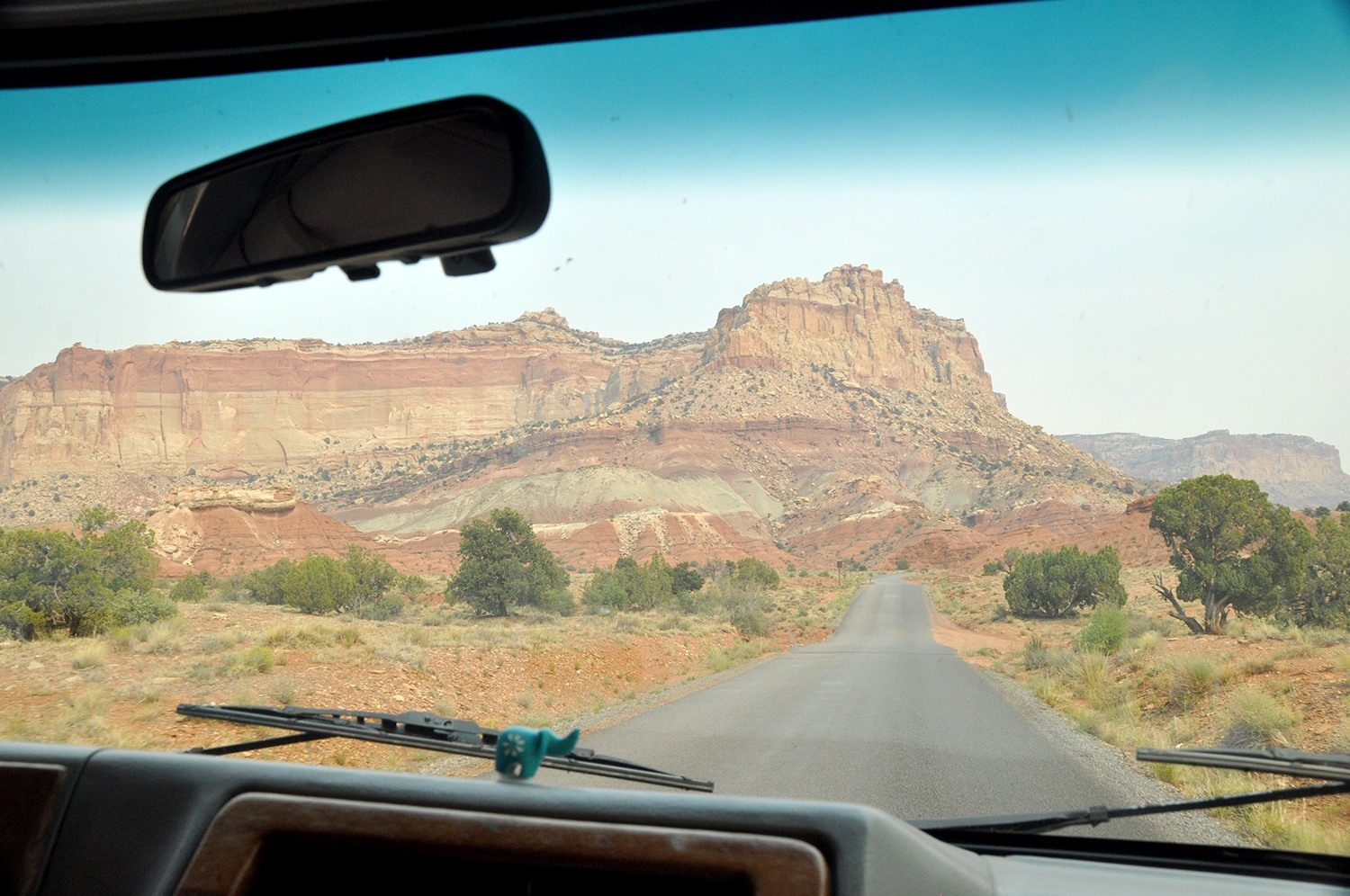
When you’re camping, be mindful of how you leave the site for the next person. We would even challenge you to leave it nicer than you found it!
Fun tip: A common piece of litter you may find at campsites is twist ties. Ben and I make it a competition of who can find the most twist ties on our camping trips. We attach them to our shoe laces and count them up at the end of the trip. Could be a fun new tradition if you have kids (or if you are a kid at heart like us!).
14. Think about your toilet time
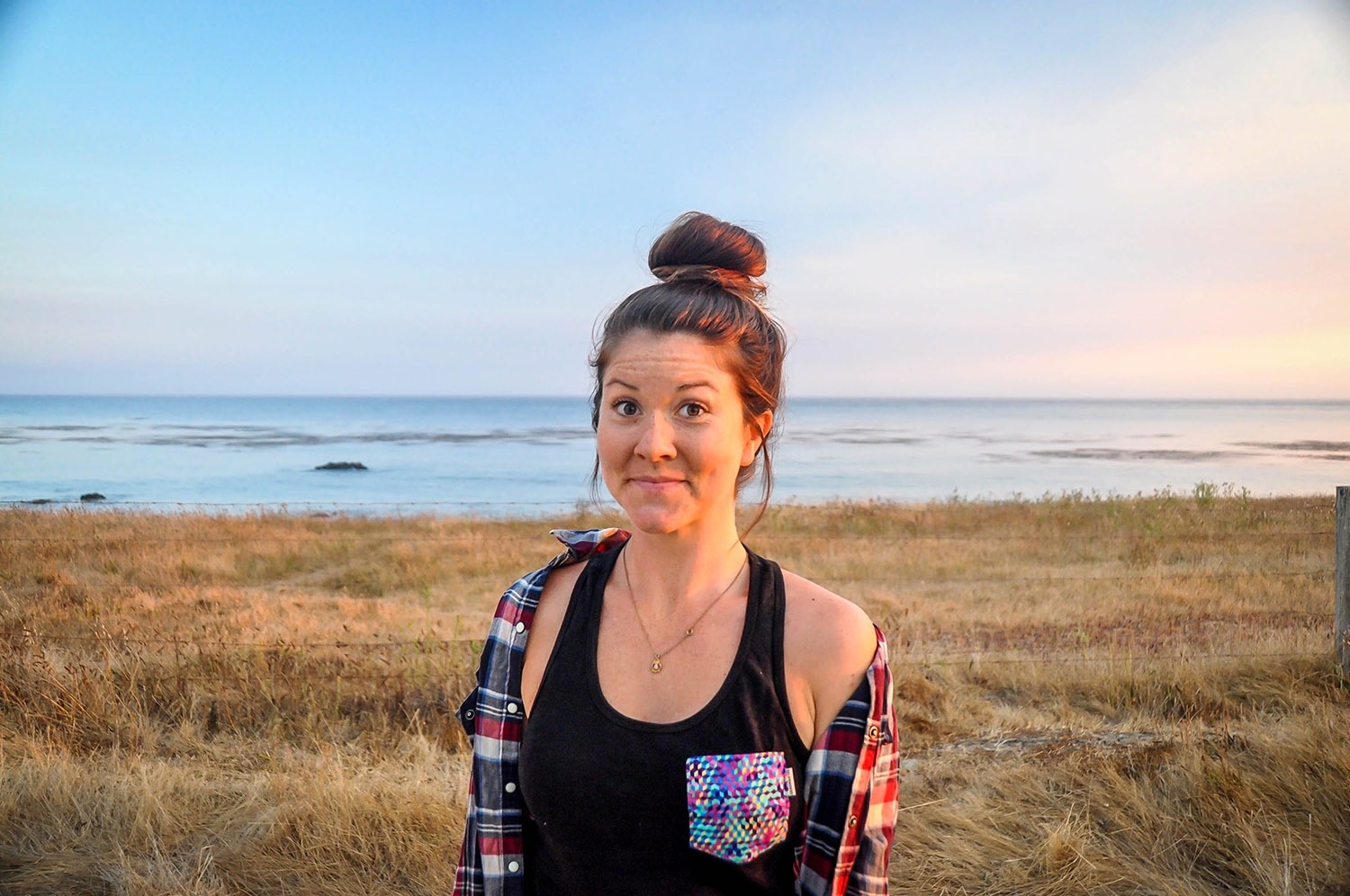
I’m going to push past the awkwardness and just get to the point. Being a little more conscious about your toilet time can go a long way. Here are some tips:
- When relieving yourself on a trip to the backcountry, be sure to dig a hole before going number two. If you aren’t carrying a shovel, find some soft ground and use your heel to get down about 6 inches. Once you’re done, cover it up because nobody wants to step in that!
- Pack out your toilet paper and tampons! Bring a bag especially for this purpose and tie it to the outside of your pack. (Make sure it’s not a clear bag, because things will get weird with your hiking companion or those you meet on the trail. Trust us.)
- Ladies: try a menstrual cup limit the waste you create. (This tip isn’t just for road trips, but it sure does make packing easier since you’ll only need to bring one item instead of a whole box of tampons!)
15. Don’t make cairns
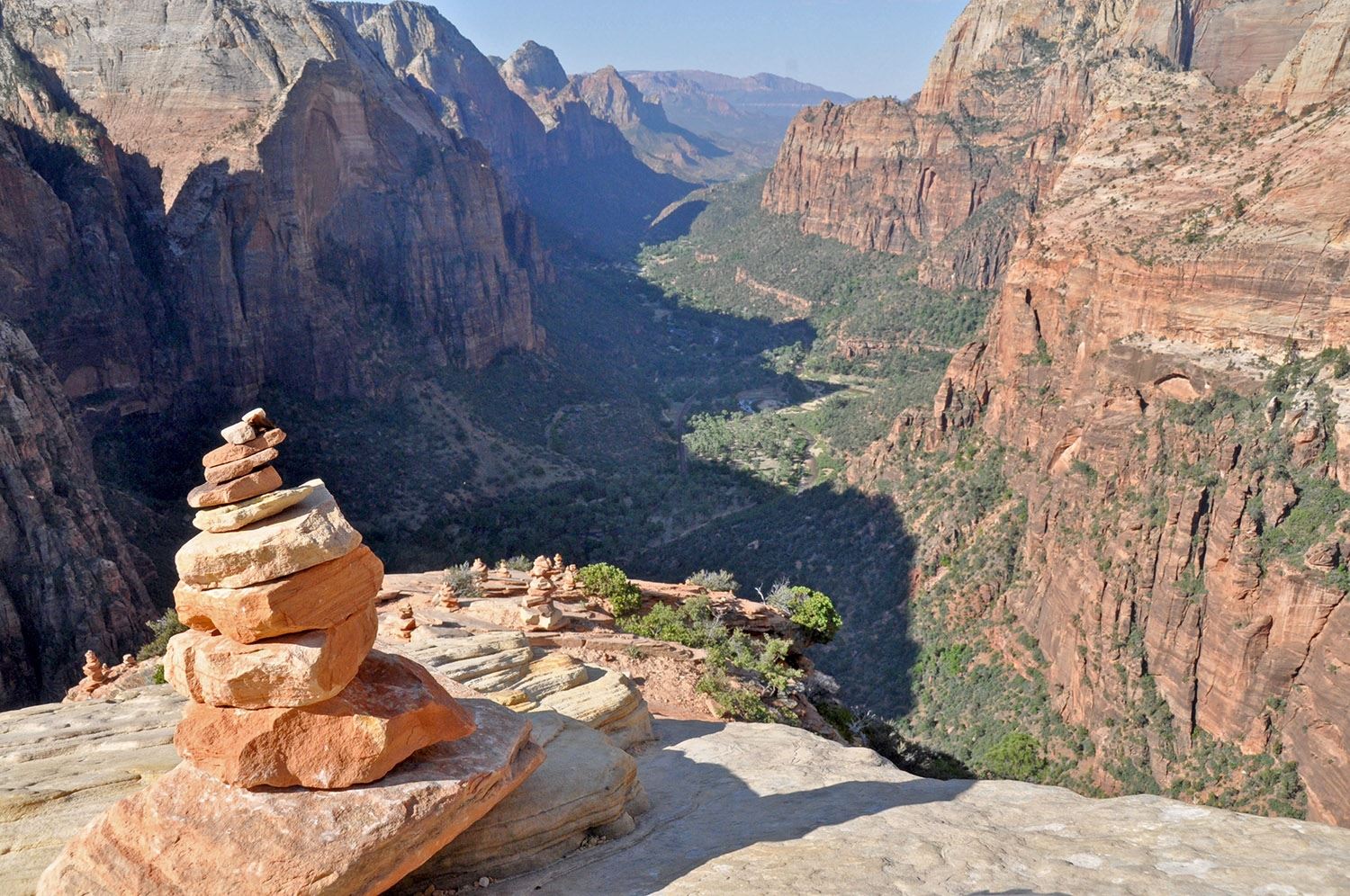
You know those little rock piles you find on trails that are super fun to take pictures of? They’re called cairns, and you may have made a few yourself. Don’t be embarrassed – we have too. But Leave No Trace guidelines urge you not to build these little rock towers for a few reasons:
- First and foremost, park rangers build cairns to help guide people the right direction when a path is hard to follow. If people passing through build cairns it can be very confusing and can even lead to dangerous situations.
- It can disrupt the land and cause erosion when rocks are removed.
- The whole point of Leave No Trace is to leave the land just as you found it. Building a cairn may seem like a small thing, but it actually does leave a “trace” that you’ve been there. Plus, what’s stopping people from going further and building bigger structures and leaving more of a mark. Keep it simple and don’t build anything.
16. Clean up after your pet
If you are traveling with a furry companion, be sure to pack all the supplies essential for cleaning up after them. Treat all parks and pathways as you would treat your backyard and pick up after your pet.
Also, be respectful of areas that dogs are not allowed and fight the urge to ignore the signs. Sometimes it is to keep the trails clean, but other times the scent of dogs on a trail can disrupt the wildlife who call the area home. In some cases it can even put you and your dog in danger.
17. Stick to the trails
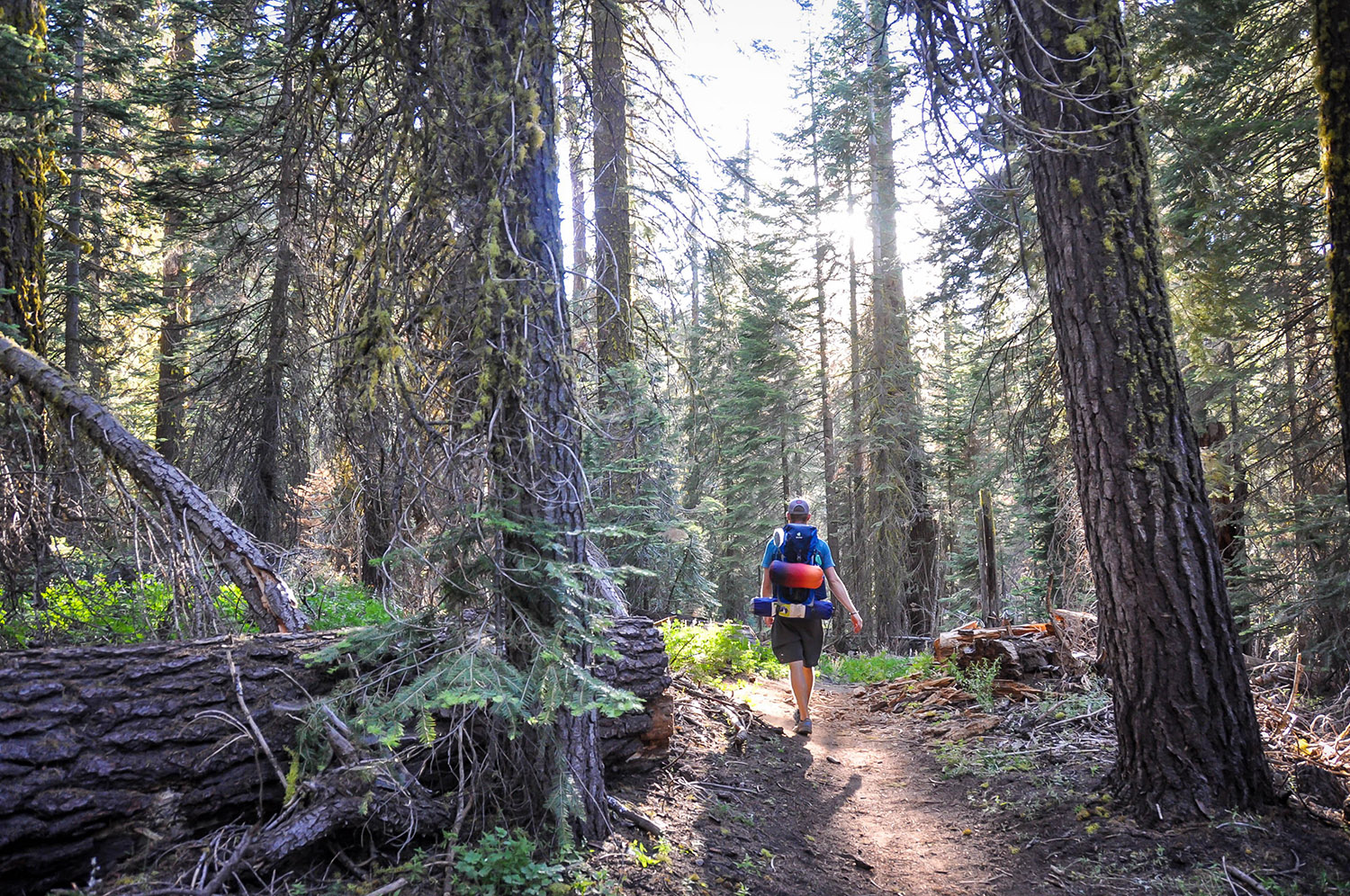
We have been guilty of going off trails in the past, but after reviewing the Leave No Trace guidelines, it has become clear to us just how important it is to stick to marked trails. Trotting off the path can cause erosion and can harm natural habitats that are fighting to stay alive. Park Rangers have methodically forged pathways, and we should try our best (within reason) to stick to them.
18. DO NOT feed wildlife
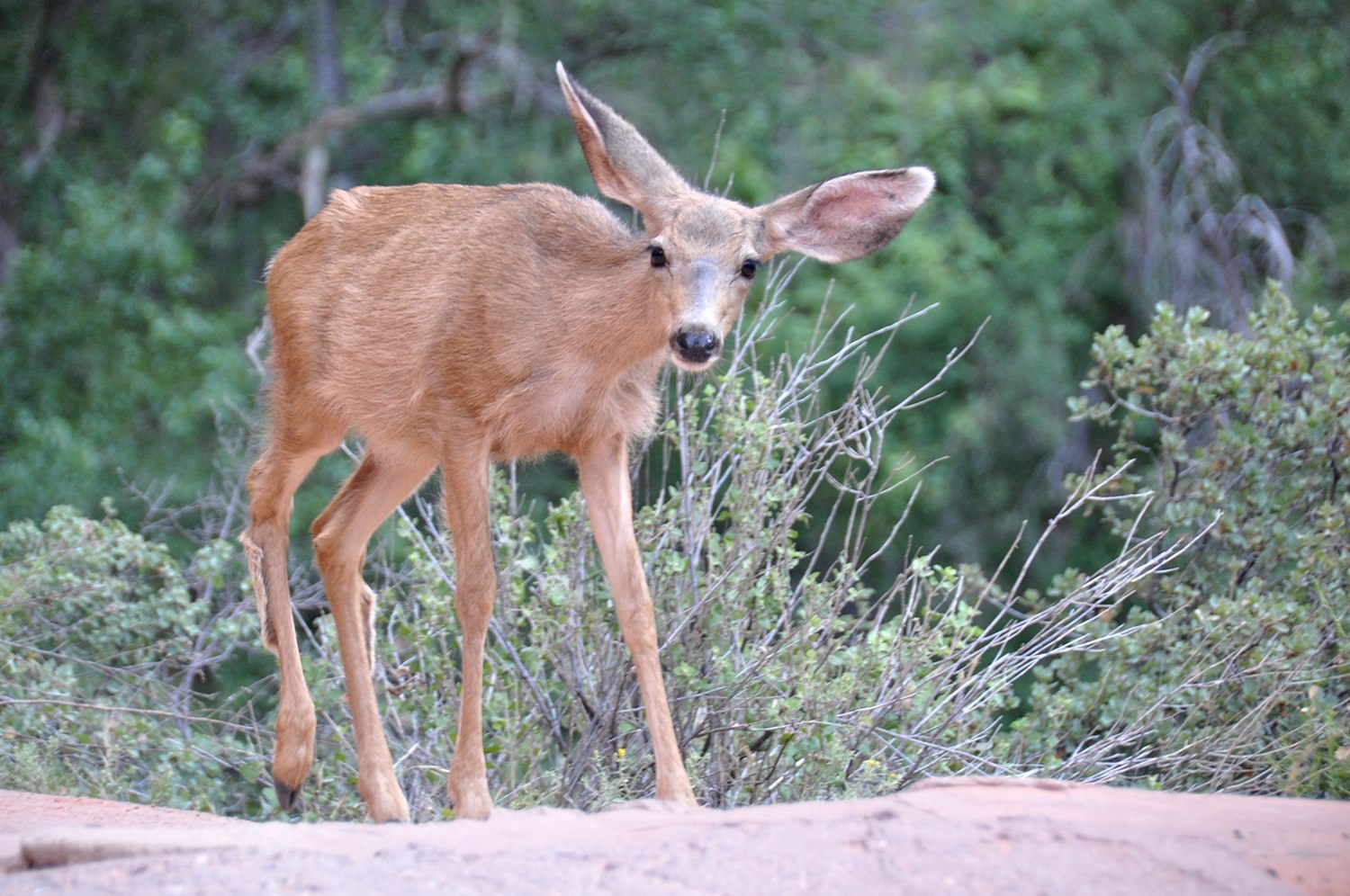
Squirrels should not be nibbling on Cliff bars. Sounds like common sense, right? While in Yosemite, we saw endless amounts of signs that warned against feeding the animals. Yet we observed a handful of people who ignored these signs, including one family who encouraged their young daughter to feed a squirrel – you guessed it – a Cliff bar.
Feeding wildlife leads to unhealthy animals that are reliant on humans and can no longer fend for themselves in their natural habitat. Observe these cute creatures and treat them with respect by refraining from feeding them. Most of the time, people who feed wildlife have the best intentions, and would even consider themselves animal lovers. But if you truly love wildlife, the best way to care for them is by keeping that Cliff bar to yourself (and dispose of the wrapper properly).
Take only memories; leave only footprints.
19. Offset your carbon footprint
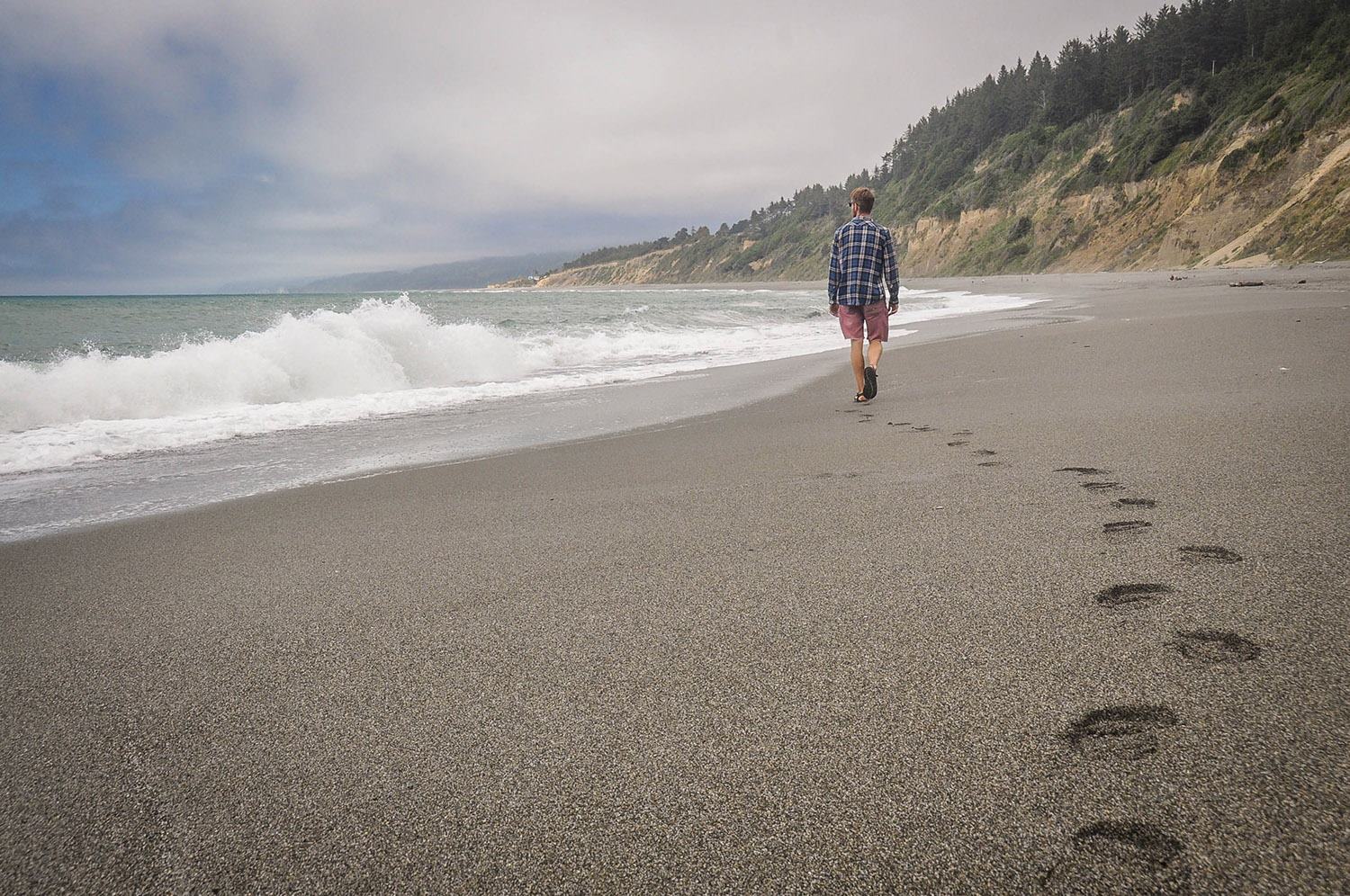
If you want to go above and beyond and truly offset your carbon emissions after a road trip, you can calculate your footprint and “make up for it”.
The idea is simple: Enter the make and model of your vehicle, plus the number of miles driven into this calculator. It will calculate the carbon emissions in metric tons, and will convert it into dollars. It gives you options of projects to donate this money to, like a reforestation project in Kenya, for example. It is a small way to really make a tangible difference.
You might also like…
- How to Plan an Epic USA Road Trip
- 14 Inspiring Campervan Experts and Their Advice for You
- 47 Money-Saving Tips for a Cheap Road Trip Across the USA
- Van Life Q&A: All You Need To Know About Campervan Life
Save this article for later on Pinterest!
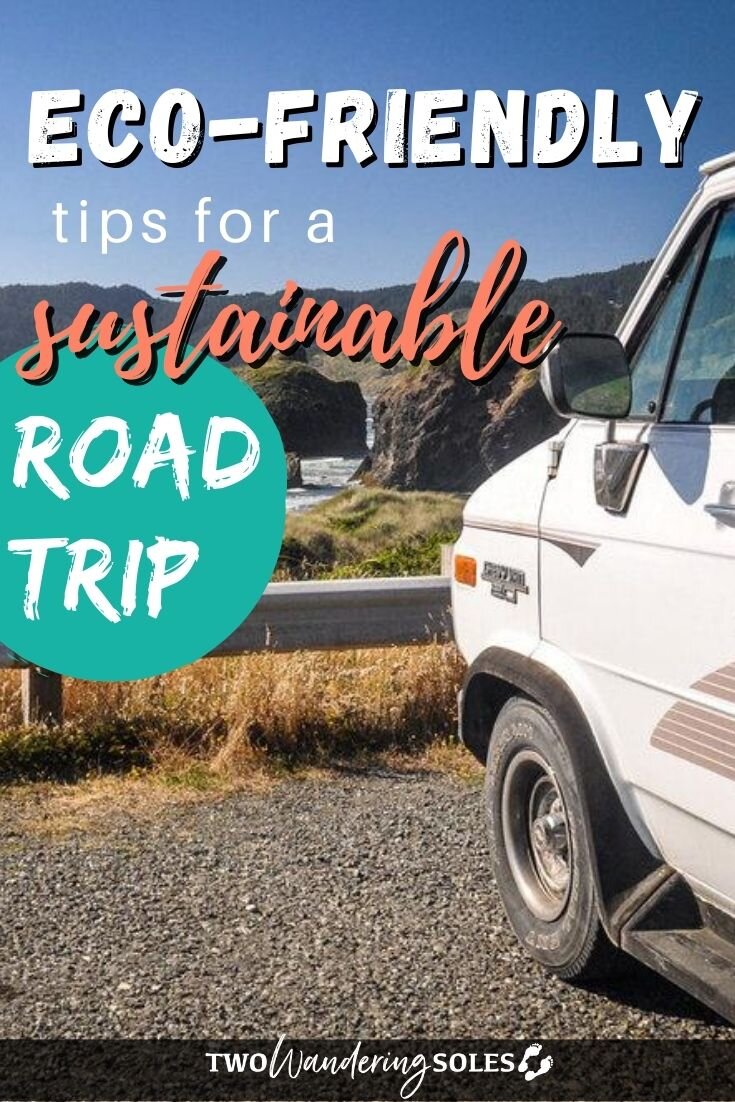
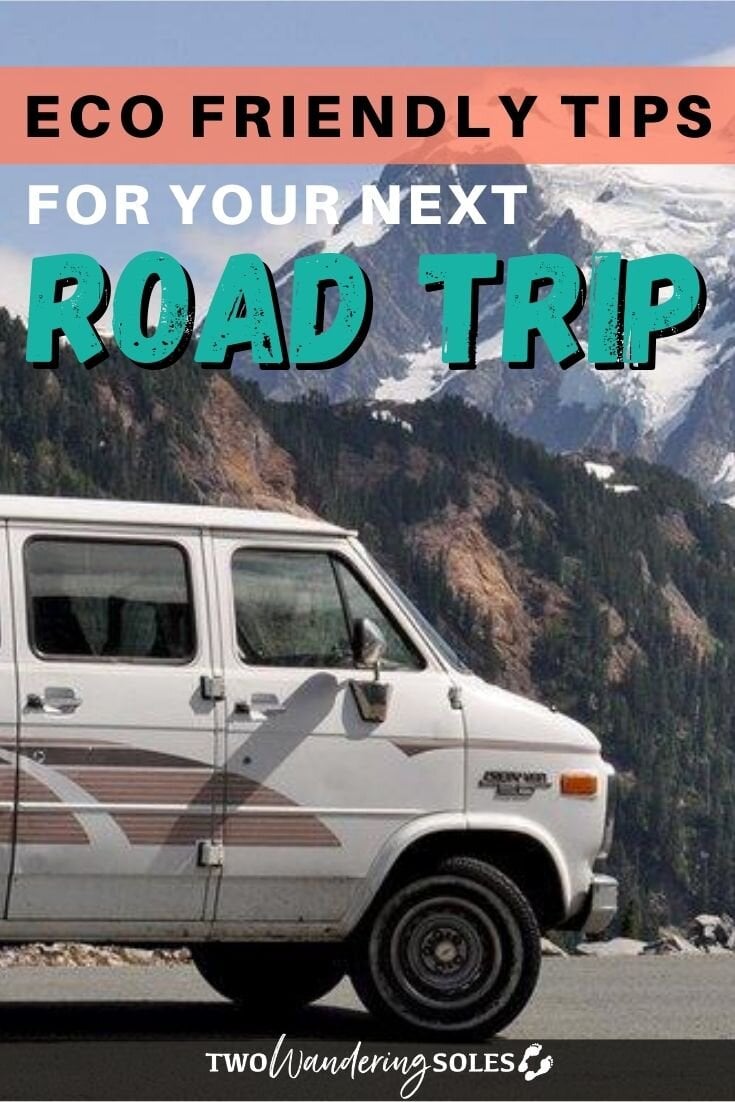
We want to hear from you!
There are so many more ways you can make your road trip eco-friendly, and we’d love to hear your tips! How do you travel responsibly?

Katie Diederichs is the lead writer and co-founder of Two Wandering Soles, where she creates in-depth travel guides, itineraries, and tips designed to help readers plan better trips with confidence. With a background in journalism, photography, and design, she combines thorough research with firsthand experience to deliver clear, practical, and visually driven travel content. As the primary trip planner, Katie turns complex logistics into easy-to-follow advice travelers can actually use.

Fantastic Article! Great thought must keep people aware of how we can make eco-friendly trips. I am going to share this Article with my friends so whenever they plan a trip, they remember all the key points to enjoy the eco-friendly trip. Thank you, keep sharing such information in the future too.
Yo
Thank you for this good content.
I’m working on my own on atravel routing app as a hobby, which gives the possibility to see an estimation of the CO2 emission of a route.
My app: https://yourtravelroute.com/create
Thank you! David
I appreciate you for your work and think is just Great. we know there are so many peoples who are living in their vans and also in other motorhomes. and I personally know a lot of them who always ready for trips, but I have never seen any single person who thinks like you, as you shares your thoughts with us to keep clean our globe…
Well, thanks you guys. That means a lot to us. We really try to minimize our footprint everywhere we go. We’re not perfect, but we enjoy sharing our story and tips so that we hopefully can inspire others as well.